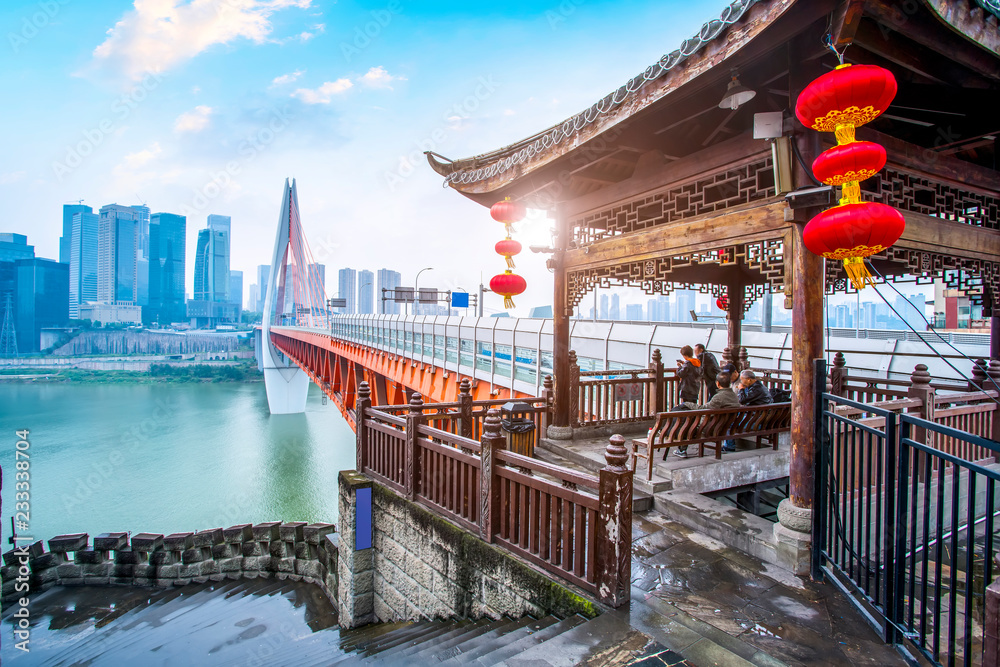Despite the suppressive communist image that the public media portrays, China is actually more open and capitalistic than majority of people think. Its government call themselves communist, and it is true that the government takes serious and strict measures sometimes or in certain regions. However, in general, the market is open for the majority of the common people and for foreigners. Just as there are regulations in America or anywhere else in the world, China has its own regulations. As long as these regulations are respected, people have their rights to live.
After all, it is a country with over 1.4 billion people, which is close to five times the population of the US. To manage such massive population, the leaders of the country has to be firm both internally and externally, but these decisions have to be for the benefit of the majority of its citizen or the 1.4 billion people would upraise against the government.
Enough about the politics. The message here is that you do not need to be scared to visit China. Just as visiting elsewhere, use your common sense when you travel, then you’ll be fine. In fact, you’d be mesmerized!
I. General
China is as big as the USA or all Europe combined. Just as there are so many culture and languages there are in Europe, various parts of China speak different languages, eat different things, and follow different traditions. In that sense, it is like the Asian version of European Union but with a central government.
That is why it is very important to know where you are going, what your interests are, what the weathers are like, what the transit time are, and so on. It may sound like a lot of work but I am sure you enjoy the process of travel planning when you planning to go to China!
II. Transportation
Short Distance
- Uber – in major and mid-sized cities, Uber would be the most convenient mean of transportation.
- Taxi – Drivers can take longer route to charge you more so be specific as to which route you want the driver to take, but at the same time, the driver maybe taking the route simply because the shorter distance route is just too jammed. Be generous and be patient, unless if you know the geography and the language.
Long Distance
- Bullet train (“Gao Tie”) – this would be the fastest and less expensive way to travel long distance in China.
- Bus – very convenient in China.
- Airplane – more costly there are several domestic flights available.
***You cannot drive in China, unless if you have Chinese driving license. IDP (International Driver’s Permit) is not effective in China.
states of repair.
III. Accommodation
Most franchised hotels are available in China.
However, there are several domestic hotels that are descent, as well. The only recommendation that we have here is not to leave your belongings on the floor.
Many hotels in China have draining problem, even in some of four-star hotels.
You may ask the front desk to change the room but most rooms have the same problem, and it is probably too late to change the room, anyways.
Air B&B is available in certain cities. It is becoming more popular now a days.
IV. Food
Different regions have different kind of food. As a general rule of thumb, northern food (eg. Beijing) is salty, eastern food (eg. Shanghai) is sweet, western food (eg. Chongqing) is spicy, and southern food (eg. Guangzhou) is tasty. As people say, Chinese people eat anything. Some people may be disgusted by what Chinese people eat but it is just the way not to waste any food. You should try as much as possible, as some of them are surprisingly good.
In major cities, various international restaurants are available, and many are good at affordable prices.
Water – tap water is NOT drinkable. You can use tap water for brushing teeth.
V. Safety
In general, very safe.
However, you should always use common sense. In bigger cities, there are petty crimes, that can, sometimes, go extreme. Listen to what other travelers and locals tell you.
VI. Climate
China is a large country. You should check the climate of the places that you visit before you travel.
VII. Power Plug & Voltage
Power Plug: 1) Type A
2) Type C
3) Type I
Voltage: 220V, 50HZ
(Hong Kong is 200V, and Taiwan is 110V)
Reference: https://www.iec.ch/world-plugs
VII. Language
China has 7-10 major Chinese dialect groups, including Madarin (official language of China), Cantonise, Hokkien and so on. In addition to these major languages there are hundreds of dialects. What connects most of them are the writing system. Anyways, if you are to learn the language, start with Mandarin, since it is the official language, and most people, especially millenias, learn it in school.
You may meet English speakers but expect to see none outside hotel and airport.
VIII. Currency
National Currency: Chinese Yuan (CNY or a.k.a. RMB as in Rem Min Bi)
Quick currency conversion:
USD 1 = RMB 15 (actual varies from USD 1 = MXN 14 – 19)
General sense of the cost in the currency
1 can of coke: RMB 5
1 bowl of noodle: RMB 20
1 meal in McDonalds: RMB 30
1 meal in restaurant: RMB 100 – 300 / person
Tips (supermarket / street): no tips necessary
Tips (restaurant): no tips necessary
IX. Visa and Other Requirements
Check the visa requirement before you purchase your flight tickets:
https://discover.passportindex.org/
Also, do not forget to check the COVID vaccination requirements.
